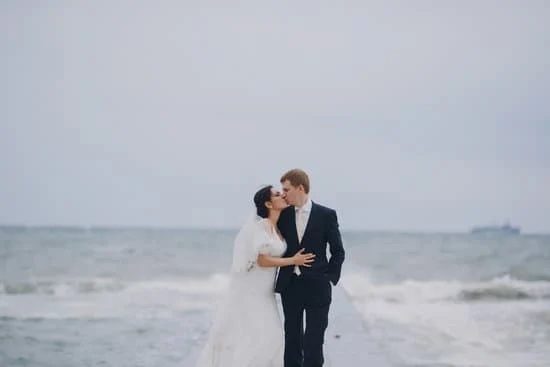What is a wedding for? This seemingly simple question holds a complex and multidimensional answer. Weddings have long been a significant and cherished part of human society, encompassing history, culture, emotion, social dynamics, finances, and personal meaning. In this article, we will explore the diverse meanings and purposes of weddings, delving into their historical, cultural, emotional, social, financial, personal significance as well as examining how the concept of weddings may change in the future.
Weddings have played a central role in human history dating back to ancient civilizations. From arranged marriages to love matches, weddings have evolved over time, reflecting changes in societal values and norms. Understanding the historical significance of weddings provides valuable insight into their contemporary meaning.
Beyond historical context, weddings also carry deep cultural and religious significance. Different traditions and rituals associated with weddings vary widely across different cultures and faiths. These customs not only reflect cultural values but also serve as a means of preserving heritage and identity. Additionally, weddings hold great emotional significance as they symbolize love, commitment, and the formation of new family units. As such, the emotional impact of weddings should not be underestimated.
Furthermore, weddings serve as significant social events that bring people together to celebrate love and create lasting memories. They provide an occasion for friends and family to rejoice in the union of two individuals while strengthening social bonds within communities. The financial significance of weddings should also be acknowledged; they play a major role in fueling the wedding industry’s growth which has far-reaching economic implications.
Yet amidst these broader considerations lie deeply personal meanings for each couple involved in planning their wedding day-a momentous occasion that serves as a milestone reflecting their unique journey together. Understanding this multifaceted nature of what a wedding is for helps capture its true essence.
The Historical Significance of Weddings
Weddings have been an integral part of human society for centuries, and their significance has evolved over time. Throughout history, weddings have served as a way to formalize the union between two individuals and their families. In ancient times, weddings were often seen as a political or economic alliance between families, with little consideration given to the feelings of the couple involved.
Over the centuries, the meaning of weddings has shifted, and they have become more focused on love and companionship. In many cultures, weddings are now considered a celebration of the love and commitment between two people. This shift in focus has also led to changes in wedding traditions and rituals, with greater emphasis placed on personalization and meaningful symbolism.
As societies have progressed and changed, so too have the customs and traditions surrounding weddings. While some traditions remain deeply rooted in religious or cultural practices, others have evolved or been adapted to reflect modern values. For example, in some cultures, arranged marriages were once common practice, but today many couples choose their partners based on love and mutual affection rather than familial obligation. This evolution highlights how weddings continue to reflect the changing values and expectations of each society.
The Cultural and Religious Aspects of Weddings
Weddings are not only a celebration of love and commitment between two individuals but also a reflection of cultural and religious traditions. Different cultures and religions have their own unique wedding customs and rituals, making each wedding a rich tapestry of diversity. From the vibrant and colorful Indian weddings to the solemn and traditional Japanese weddings, the cultural aspects of weddings showcase the beauty of human traditions.
In many cultures, weddings are not just about the union of two individuals but also the merging of families. The rituals and ceremonies performed during weddings often symbolize this coming together of two families.
For example, in some African cultures, there is a tradition called “Kola nut ceremony” where the families exchange kola nuts as a way to show respect and goodwill towards each other. Similarly, in Hindu weddings, the exchanging of garlands between the bride and groom signifies their acceptance of each other and their families.
Religious aspects also play a significant role in shaping weddings. In Christianity, the exchange of vows and rings is an essential part of the wedding ceremony, symbolizing the couple’s commitment to each other in the presence of God.
In Jewish weddings, traditions such as breaking a glass symbolize remembrance of difficult times as well as the fragility of life. These cultural and religious customs make weddings not just a personal affair but also a reflection of larger social and spiritual values.
| Cultural Aspect | Significance |
|---|---|
| Kola nut ceremony in African weddings | Symbolizes respect and goodwill between families |
| Exchanging garlands in Hindu weddings | Represents acceptance of each other’s families |
| Breaking the glass in Jewish weddings | Symbols remembrance of difficult times |
The Emotional Significance of Weddings
- Love: At the heart of every wedding is the celebration of love. It is a public declaration of the affection and bond shared between two people. The exchange of vows and the promise to support each other through thick and thin symbolize the depth of their love.
- Commitment: Weddings mark the beginning of a lifelong commitment between partners. They signify the dedication to building a future together, facing challenges as a team, and prioritizing each other’s well-being.
- Family: Weddings bring families together, uniting not only the couple but also their respective families. It signifies the joining of two families, creating an extended network of love and support for the newlyweds.
The emotional significance of weddings extends beyond just a celebration; it represents the very foundation on which a marriage is built – love, commitment, and family.
Ultimately, weddings are not just about throwing a lavish party or following traditions; they hold immense emotional value for those involved. They represent the beginning of a new chapter filled with love, trust, and companionship. This emotional significance makes weddings more than just an event – they are a symbol of unity and hope for the future.
The Social Significance of Weddings
Weddings are not only about two people coming together in love and commitment, but they also hold significant social importance. This section will delve into the role of weddings in bringing people together and creating lasting memories for the couple and their guests.
Bringing Communities Together
One of the key aspects of the social significance of weddings is their ability to bring different communities, families, and friends together. Weddings often serve as a celebration that transcends cultural, religious, and social barriers, allowing people from diverse backgrounds to come together in joy and unity. It is a time when old friends reunite, distant relatives gather, and new relationships form, creating a sense of interconnectedness and belonging that extends beyond the couple getting married.
Creating Cherished Memories
Weddings are not just a one-day event; they create lasting memories for everyone involved. From the excitement of the proposal to the joyous celebrations on the big day, weddings leave an indelible mark on the hearts of those who witness and participate in them.
The laughter, tears, and heartfelt moments shared during weddings become treasured memories that are reminisced upon for years to come. Moreover, these moments also serve as a bonding experience for everyone involved, strengthening relationships and creating a sense of shared history among family and friends.
The Role of Technology in Modern Weddings
Advances in technology have revolutionized how weddings bring people together and capture memories. Social media platforms allow for real-time sharing of wedding festivities with loved ones who may be unable to attend in person. Additionally, virtual reality experiences or live streaming services offer an opportunity for remote guests to feel present at the event. Furthermore, advancements in photography and videography ensure that every precious moment is captured for posterity, allowing couples to relive their special day again and again.
As we can see from these different perspectives on the social significance of weddings, they play a vital role in uniting people from various walks of life while leaving an enduring impact on their lives through cherished memories.
The Financial Significance of Weddings
The wedding industry is a multi-billion dollar business, encompassing everything from venues and catering to dresses and photography. But beyond just being a lucrative industry, this sector plays a significant role in the economy and has a broader impact on society as a whole. The financial significance of weddings goes beyond the cost of throwing an event; it also includes the economic benefits and implications associated with this momentous occasion.
Weddings create a ripple effect in various sectors, such as hospitality, tourism, fashion, and even entertainment. Wedding guests often travel from out of town, book accommodations, and frequent local businesses during their visit. This influx of tourism can have a positive impact on the local economy, supporting small businesses and creating job opportunities. Additionally, the demand for wedding-related services fuels entrepreneurship and innovation in sectors like event planning, floral design, and bridal fashion.
However, the financial significance of weddings also comes with challenges. The pressure to host an extravagant and expensive wedding has led to couples and their families accumulating substantial debt or overspending to meet societal expectations. The commercialization of weddings may overshadow the true purpose of celebrating love and commitment. As such, there is a growing movement towards more budget-friendly or minimalist weddings that focus on personal meaning rather than extravagant displays of wealth.
In essence, the financial significance of weddings extends beyond individual celebration to impact industries and economies at large. While the wedding industry undoubtedly contributes to economic growth and job creation, it also raises questions about consumerism, social expectations, and personal values. Understanding these dynamics is essential when contemplating what is a wedding for?
The Personal Significance of Weddings
In addition to symbolizing love and commitment, a wedding holds deep emotional significance for the couple. It is a day filled with joy, excitement, and anticipation, as they prepare to exchange vows and begin their married life together. Many couples see their wedding day as a reflection of their personalities and values, often incorporating meaningful traditions or rituals that hold sentimental value to them.
Furthermore, the personal significance of weddings extends to the memories created on that day. It is a time when families come together to celebrate the union of two individuals, creating lasting memories that will be cherished for years to come. The wedding day becomes a part of the couple’s personal history, marking the beginning of their shared story as partners in life.
| Personal Significance | Couple’s Commitment |
|---|---|
| Symbolizes love and commitment | A public declaration of devotion |
| Holds emotional significance | A reflection of personality and values |
| Creates lasting memories | A celebration with family and friends |
The Future of Weddings
Technology and Virtual Weddings
With advancements in technology, it is not far-fetched to imagine virtual weddings becoming more common in the future. This could be a way for couples with long-distance relationships or those unable to travel to still celebrate their love with friends and family from around the world. Additionally, virtual reality (VR) technology may offer new ways to enhance the wedding experience for both guests and the couple.
Eco-Friendly Weddings
As environmental awareness grows, there may be a shift towards more eco-friendly weddings. Couples may opt for sustainable and biodegradable decor, plant-based menus, and minimal waste practices. Furthermore, they may choose venues that have eco-friendly certifications and prioritize ethical suppliers for their wedding needs.
Personalized Wedding Experiences
In the future, weddings may become even more personalized and unique to each couple. With a focus on authenticity and individuality, there may be an increase in non-traditional ceremonies that reflect the specific values and beliefs of the couple. This could also extend to personalized rituals and customs that hold personal significance for the individuals getting married.
As societal values shift and technological advancements continue to shape our world, it’s intriguing to consider how these changes will impact the institution of marriage and the concept of weddings. While some traditions may endure, it’s inevitable that weddings will continue to adapt to reflect the values and needs of each generation. Ultimately, what is a wedding for may evolve alongside these changes.
Conclusion
In conclusion, the concept of a wedding encompasses a multitude of meanings and serves various purposes. From its historical significance and cultural and religious aspects to its emotional, social, financial, personal significance, weddings are multi-dimensional events. The culmination of love, commitment, and family ties creates a powerful symbolism that goes beyond just a celebration.
The future of weddings may see changes in the traditional concept as society evolves and new perspectives emerge. However, the essence of weddings as a unifying force bringing people together and creating lasting memories will likely remain unchanged. As couples continue to find new ways to express their love and commitment, the meaning and purpose of weddings will continue to adapt to reflect the values of each generation.
Ultimately, what is a wedding for? It is about honoring traditions while celebrating the uniqueness of each couple’s journey. It is about creating enduring bonds and cherished memories for all involved. Whether it is a lavish affair or an intimate gathering, weddings hold deep significance for those who choose to embark on this beautiful journey together.
Frequently Asked Questions
What Is the Purpose of Wedding?
The purpose of a wedding is to publicly celebrate and formalize the union between two people who love each other. It is a meaningful and symbolic event that marks the beginning of their life together as a couple.
What Is the Purpose to Someone Wedding?
The purpose to someone’s wedding is to affirm their commitment to their partner in front of their family and friends, and to celebrate their love and future together. It’s a significant milestone in their relationship.
What Does a Wedding Symbolize?
A wedding symbolizes the joining of two individuals in love and unity. It represents the start of a new chapter in their lives, as well as the merging of families and communities. Additionally, it signifies hope for the future and promises made between partners.

Welcome to my blog about home and family. This blog is a place where I will share my thoughts, ideas, and experiences related to these important topics. I am a stay-at-home mom with two young children. I hope you enjoy reading it! and may find some helpful tips and ideas that will make your home and family life even better!





